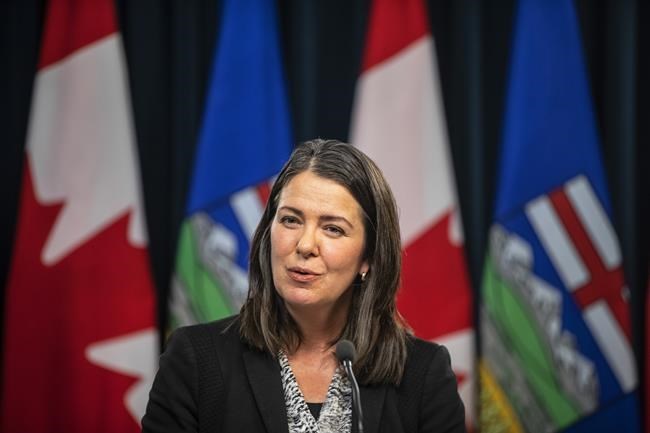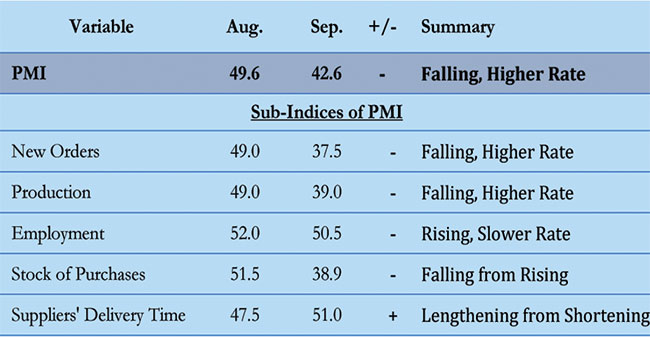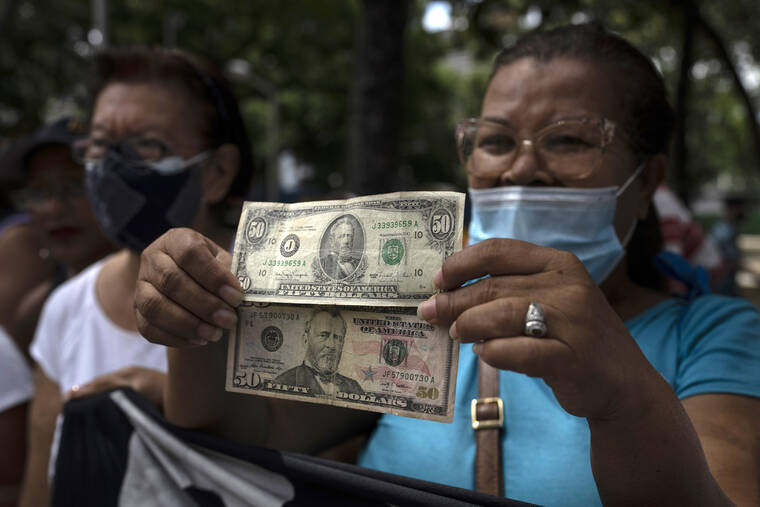Don’t irrationally fear the booster shot – The Island

by Dr Nadisha Badanasinghe,
Lecturer and Specialist in Microbiology Faculty of Medicine, University of Kelaniya
COVID-19 was the most terrible pandemic to hit the world recently and people all over the world are still suffering from it. But in Sri Lanka, there has been a considerable decrease in infection over the past few months as 80-90% of the population had taken the first and second doses of the vaccine.
However, a third (booster) dose is necessary because the protection period of the first two doses is getting shorter. We are seeing a sharp increase in the spread of the disease for many reasons; people being reluctant to take the booster, the country being fully open, a large increase in public gatherings, and the ability of the Omicron variant to spread very quickly.
The cause of COVID-19 is a virus called SARS-Cov-2. This pandemic, which was first recognized in December 2019, has since spread with different variants. At present, around 400 million cases of COVID infection are reported worldwide and the death toll stands at over 5.7 million. Even now, around two million COVID-infected cases are reported for one day.
The picture of Sri Lanka is that over 600,000 cases of infection have been reported and over 15,000 people have died from the infection. Currently just over 1,000 infections are reported here every day, but the true incidence is much higher. Even though it has now been two years since the COVID-19 virus broke out, a decrease in the spread of the disease by only adhering to safety measures like washing hands and wearing masks cannot be seen.
This is why populations should have vaccine-induced immunity as the most effective and consistent protective measure. The vaccination campaigns in Sri Lanka are among the best in the world. It is satisfactory that about 95% of eligible people took the first dose and 80% the second dose. However, it can be seen that there is an irrational fear in society about the booster dose.
To date, only about 5.9 million people (less than 50%) have taken the third dose. This is a tragic situation perhaps mainly due to lack of awareness about how vaccines work and delusions in society.
We should have a thorough understanding of why we should be vaccinated. We will have a good immune response after completing the second dose. Complete immunity is not acquired only after the first dose; therefore, the second dose should also be taken to complete the primary treatment. Although we achieve about 90% immunity after the two doses are completed, this protection is temporary.
According to scientific research, Covishield and Pfizer will grant immunity for six months after the second dose, while Sinopharm covers a period of about three months. However, this 90% immunity is reduced to 40% after six months. When immunity drops, there is a possibility of getting infected.
That is why the booster is given when immunity drops after the primary course. The well-timed booster will not only boost immunity which had dropped after six months, but will also protect for a considerably longer duration. In other words, the booster is able to raise immunity to a higher level and maintain it significantly longer.
Usually, we receive two types of vaccines from birth: “live attenuated and killed”. Live vaccines provide us with the maximum immunity in which the virus particles in the vaccine replicate in our cells. The vaccines given to us in early childhood against chickenpox and measles are examples of live vaccines and they rarely need frequent boosters. On the other hand, killed vaccines do not have the ability to replicate in the body. Therefore, boosters should be given from time to time to supplement their immune response. Examples of killed vaccines are tetanus, diphtheria and hepatitis B for which multiple boosters are given during infancy.
All COVID-19 vaccines are “killed vaccines”, so they cannot replicate in our bodies. This is why it is necessary to take several doses or boosters to protect against COVID-19. It is possible that another dose after the third will also be needed in the future if the disease continues to spread, as immune protection against killed vaccines is not long lasting.
Through vaccination, our body recovers from infections by preparing and training our immune system to fight infectious agents (pathogens). The immune system identifies pathogens and kills them. In addition, it can remember pathogens and destroy them in case we are exposed to them later. This characteristic of our immune system is called “memory” and it is the basis of vaccination. Vaccines are made up of particles of pathogens (attenuated viruses and bacteria). Our immune system recognizes these particles and produces an immune reaction with a memory response. When we are exposed to the real pathogen, the memory response kicks in and kills the pathogen.
The Omicron variant is spreading rapidly these days as a replacement for the Delta variant. When viruses spread so fast and multiply rapidly, they are able to undergo genetic mutations and produce different variants. Another benefit of vaccination is that it reduces the transmission and multiplication of the virus and controls the formation of different variants.
The Omicron variant was found in an African country. Vaccination is not happening at the same pace in all countries and vaccination is slow in Africa, creating conditions for new variants to emerge. Fortunately, our immunization programs are working very successfully compared to other developing countries with such programs conducted even at the regional level covering the entire population of the country.
Medical officers of health, public health administrators and midwives are engaged in this process. We must therefore do our duty, get vaccinated and help continue this process successfully. We could only continue our daily activities and build our economy if we remained healthy.
We see that young people are reluctant to take the abseil. The main reason for this is the confidence that they have good immunity. It is true that young people without other diseases have good immunity. But there have been cases where infected youngsters have had complications, needed intensive care treatment and even died. The good news is that young vaccinated people will generate a very effective immune response compared to older people.
There are also other reasons why young people should be vaccinated; they are the group most at risk because they have to continue their higher education, employment, etc. Once at home, they are in contact with elderly people and young children who have not yet been vaccinated and who are at risk of complications. Therefore, it is the responsibility of young people to get vaccinated, to protect themselves and to keep their families and society safe by curbing the transmission of the virus among vulnerable people.
If the vaccination had not been carried out properly and the country was continually at a standstill in this regard, it is still the young people who would have been the hardest hit. Universities have been closed for a considerable period and some may have lost their jobs due to the closure of industry and tourism. Young people must continue their physical education, and young people must support vaccination programs to revitalize industry and tourism.
Some young people also mistakenly think that the vaccine can have harmful effects on their health. These vaccines are approved after they have been scientifically tested and their safety established. It is not true that the vaccine causes sterility in both sexes, with research proving that there is no such impact.
Priority is given to pregnant women in the vaccination process because they are more at risk if they are infected. Pregnant women have died from the coronavirus in recent waves of COVID-19. Some people are reluctant to refer older people for vaccination for fear of complications. Since the elderly develop a relatively weak immune response, it can be seen that they have fewer side effects than others. It is therefore urgent to vaccinate them because they are the group most vulnerable to the complications of the disease.
Suspecting that the mutation of our genes or DNA is caused by the vaccine is another delusion that worries people. No COVID-19 vaccine poses such a risk to DNA or genes. Pfizer is made up of mRNA only, not DNA or genes. Therefore, there is no impact on our DNA or genes. The mRNA only encodes a signal to produce viral proteins in our body to which our immune response is directed. Immunity in our body is produced by means of antibodies against these viral proteins. As soon as this goal is achieved, the components of the vaccine are removed from our body.
Only the antibodies produced by our body against these viruses remain. Side effects like pain in the injected area of the arm, body aches and fever are caused during the immunity building period. Since the vaccine is injected into the muscles, muscle pain may persist for a few days. It is also important for infected patients to take the vaccine after they recover, as it has been proven by research that they get high immunity once it is taken after infection. Vaccinated people will not get serious illness or complications even if they test positive. It is clear that those who died or had serious complications were not properly vaccinated.
It is the Pfizer vaccine that has been administered continuously in most European countries and in America. Therefore, most research on its safety and effectiveness has been conducted in these countries. It has been assured that this vaccine is completely safe and effective. However, we received the Pfizer vaccine quite late, although some people asked for it early on. Now the necessary amount of vaccines have been received. Therefore, it is wise to get vaccinated as soon as it is available.
As of now, the spread of the Omicron variant has taken a terrible turn. Nevertheless, we are still seeing patients with mild to moderate symptoms probably because they have already had their first round of vaccine. The Pfizer vaccine provides an effective immune response against Omicron and other variants of the coronavirus.
The youth of the country bears a special responsibility in the vaccination program against COVID. They should lead by example by getting the recall as soon as possible and protect themselves and others around them. Also, they have a great responsibility to make others aware of the facts by organizing awareness campaigns through social media and mass media. All the scientific evidence regarding vaccines is easily available on the well-known websites on the internet.
Therefore, as informed and responsible citizens, they should not be involved in spreading negative and false information about vaccines via social media. Young people can best serve as responsible citizens by getting vaccinated and educating others about the need for vaccination.





